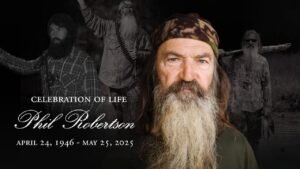Michelle Rodriguez: Growing Up Under Jehovah’s Witnesses and Breaking Free from Restrictive Beliefs

Michelle Rodriguez
Introduction to Michelle Rodriguez
Michelle Rodriguez is a renowned American actress and screenwriter, celebrated for her compelling performances in various film genres, particularly action and drama. Born on July 12, 1978, in San Antonio, Texas, Rodriguez has carved a niche for herself in Hollywood with memorable roles in blockbuster franchises such as “The Fast and the Furious” and “Avatar.” Her strong on-screen presence and ability to portray complex characters have not only garnered her critical acclaim but have also made her a cultural icon, particularly within the Hispanic community.
Rodriguez’s ascent to fame began with her striking debut in the critically acclaimed film “Girlfight” (2000), where she played the role of Diana Guzman, a determined boxer fighting against societal stereotypes. This performance established her as a formidable talent and opened doors to subsequent roles in films that defy traditional gender norms. Over the years, she has taken on a variety of characters, from tough law enforcement officers to resilient survivors, showcasing her versatility and commitment to her craft.
Aside from her impressive filmography, Michelle Rodriguez is known for her outspoken nature regarding issues of representation and gender equality in the entertainment industry. She often uses her platform to advocate for underrepresented communities, making her not just an actress but also a voice for change. As we delve deeper into her early life, it becomes evident how her upbringing, especially her family’s strict adherence to Jehovah’s Witnesses, shaped her beliefs and ideals, influencing her career choices and personal life. This exploration unveils the juxtaposition between her professional ambitions and the restrictive beliefs she encountered growing up, setting the stage for understanding the transformative journey she has undertaken.
Jehovah’s Witnesses: An Overview
Jehovah’s Witnesses is a Christian denomination known for its distinct beliefs and practices that set it apart from mainstream Christianity. The origins of this faith can be traced back to the late 19th century, with Charles Taze Russell establishing the Bible Student movement in 1870. This movement later evolved into the Watch Tower Bible and Tract Society, which was incorporated in 1884. The organization adopted the name “Jehovah’s Witnesses” in 1931 to differentiate its members from other Christian groups and to affirm their belief in the use of God’s name, Jehovah.
At the heart of Jehovah’s Witnesses’ beliefs is the conviction that they are the only true followers of Jesus Christ, tasked with proclaiming God’s kingdom. Their theology emphasizes the importance of living in accordance with biblical principles, advocating for door-to-door evangelism, and maintaining a strict moral code. The New World Translation of the Holy Scriptures is the preferred Bible among Jehovah’s Witnesses, as it reflects their unique interpretation of biblical texts.
Some of the fundamental practices associated with Jehovah’s Witnesses include abstaining from blood transfusions, engaging in regular congregational meetings, and refraining from participation in military service or political activities. One of the most recognizable aspects of their faith is the refusal to celebrate holidays and birthdays, which they regard as rooted in paganism and contrary to biblical teachings. This adherence to maintaining a separation from secular society also extends to avoiding mainstream entertainment that is perceived to promote immoral behavior.
In summary, Jehovah’s Witnesses have a rich history shaped by their commitment to a specific set of beliefs and practices. Their focus on biblical interpretation, evangelism, and maintaining a distinct lifestyle is crucial in understanding how individuals, such as Michelle Rodriguez, navigate their upbringing within this religious framework.
Michelle’s Childhood: Growing Up as a Jehovah’s Witness
Michelle Rodriguez’s formative years were heavily influenced by her family’s strict adherence to the principles of Jehovah’s Witnesses. This religious background imparted a distinctive set of beliefs and practices that shaped her daily life and interactions. Growing up in a household where the teachings of the organization governed almost every aspect of existence, Michelle found herself navigating a world marked by limitations and expectations that her peers often did not experience.
Central to her upbringing were the strict guidelines that Jehovah’s Witnesses observe. Celebrating birthdays, for instance, was considered contrary to their religious beliefs. Consequently, Michelle missed out on this significant rite of passage that many children cherish. This absence of birthday celebrations not only affected her personally but also created a disconnect with her classmates and peers who participated in such festivities. The reluctance to engage in what were deemed ‘worldly’ activities left her feeling isolated from mainstream culture.
Furthermore, her family’s teachings extended to the types of entertainment deemed acceptable. Watching Disney movies, which often convey themes of magic and fantasy, was also against the beliefs of Jehovah’s Witnesses. This restriction further curtailed Michelle’s engagement with popular culture and childhood experiences, distancing her from the whimsical narratives that encapsulate many children’s experiences. Instead of partaking in playful movie nights, she was encouraged to focus on educational material that adhered to the values taught by her community.
Overall, Michelle Rodriguez’s upbringing as a Jehovah’s Witness was a tapestry woven with strict guidelines and a strong sense of identity tied to her faith. These early experiences, marked by limitations and a different set of values, would profoundly influence her perceptions and choices later in life, setting the stage for her eventual journey towards self-discovery and autonomy.
The Challenges of a Strict Religious Upbringing
Growing up under the influence of a strict religious framework, such as Jehovah’s Witnesses, often presents profound psychological and social challenges. Michelle Rodriguez, like many others raised within such structured environments, faced feelings of isolation and exclusion from experiences common among her peers. The teachings of Jehovah’s Witnesses emphasize a rigorous adherence to their beliefs, which can result in children feeling disconnected from outside societal norms. This disconnect can foster a sense of loneliness, especially when friends engage in activities such as birthdays or holidays that are deemed inappropriate by the faith.
Isolation can stem from the need to adhere to strict doctrines that limit social interactions. For Michelle, participation in social events and typical childhood experiences was often curtailed. The conscious choice to abstain from commonplace activities due to religious beliefs can lead to inadequacies in social skills and community engagement. Such circumstances can create a void in a child’s life, affecting their ability to forge relationships outside their immediate religious circle. As they grow older, these feelings may compound, leading to internal struggles regarding identity and belonging.
Additionally, the strict tenets of the faith can impose challenges related to individual expression. The resistance to questioning or exploring beliefs can stifle personal growth and lead to a sense of guilt or conflict when one begins to develop their own thoughts and beliefs. This struggle may manifest in the quest for independence, especially when faced with the realization that the foundational teachings may not align with their evolving worldview. The juxtaposition of loyalty to one’s upbringing against the desire for personal freedom can create a significant emotional conflict, shaping an individual’s character and life choices in profound ways.
Breaking Free: Michelle Rodriguez’s Journey to Independence
Michelle Rodriguez’s journey towards independence is marked by a series of transformative experiences that significantly shaped her worldview. Growing up as a Jehovah’s Witness, she was subjected to strict beliefs and limitations that governed her childhood. This upbringing often placed significant restrictions on personal choices, social interactions, and even career aspirations. However, as Rodriguez transitioned into adulthood, she began to question these imposed doctrines, driven by a growing sense of self-awareness and the desire for autonomy.
One pivotal moment in her journey involved her pursuit of acting. Enveloped in a conservative environment, Rodriguez initially rode the waves of conflict between her aspirations and her faith. She started to explore the world beyond the boundaries set by her upbringing, effectively encouraging her to challenge the beliefs she had been raised with. Her initial struggles as an aspiring actress became the catalyst for her quest for independence, allowing her to find her voice and confidently assert her identity outside of her family’s religious expectations.
Additionally, the exposure to diverse cultures and lifestyles while working in the entertainment industry further spurred Rodriguez’s break from her childhood beliefs. Collaborating with various artists and experiencing different social settings opened her eyes to alternative perspectives that contrasted sharply with her own upbringing. Conversations and relationships formed during this time served as vital influences, encouraging her to embrace her individuality and step into a more liberated way of life.
Through these experiences and influences, Michelle Rodriguez not only recognized the restrictive nature of her childhood beliefs but also discovered the strength to redefine herself on her own terms. Her journey to independence exemplifies the transformative power of self-discovery and the courage required to break free from the limitations of one’s past.
Critiques of Restrictive Religions: A Broader Perspective
Restrictive religions have long been a subject of debate, as they can exert substantial influence over adherents’ lives, often dictating personal choices and behaviors. Critics argue that such belief systems can lead to a range of psychological and social challenges for individuals. For instance, many who grow up in strict religious environments may experience a conflict between their inner selves and the values imposed by their faith. This dissonance can foster deep-seated issues such as guilt, depression, or anxiety, particularly when individuals seek to explore their identities outside the constraints of their upbringing.
Moreover, the implications of restrictive religions extend beyond mere personal struggles. Societal impacts are considerable, as these belief systems may perpetuate discrimination against those who do not conform to specific ideals. In some cases, restrictive teachings can reinforce outdated gender roles, stifle critical thinking, and discourage open discussions about sexuality, mental health, and personal autonomy. Such environments can lead to significant schisms within families, especially when members begin to question the doctrines they were taught.
However, it is essential to also acknowledge that not all restrictive religions lead to harmful outcomes. For some individuals, these belief systems may provide a strong sense of community and identity, offering support during challenging times. The structure of such religions can foster a sense of belonging and moral guidance, promoting positive behaviors and values in certain contexts. Therefore, while the critiques of restrictive religions often focus on their negative consequences, it is crucial to consider the nuanced and varied experiences of individuals within these structures.
Ultimately, discussions around restrictive religions highlight the importance of understanding the complexities surrounding faith, personal freedom, and the balance between communal identity and individual needs. As society progresses, fostering open dialogues about the implications of these belief systems can enable individuals to make informed choices regarding their beliefs and lifestyles.
Michelle’s Reflections on Her Upbringing
Michelle Rodriguez’s upbringing was profoundly shaped by the teachings of Jehovah’s Witnesses, a faith known for its strict adherence to doctrine and community standards. As a child, she navigated a world where personal expression was often subordinated to religious orthodoxy. This environment instilled in her a sense of duty and discipline, but it also led to feelings of confinement. Reflecting on her childhood, Rodriguez has expressed that the limitations imposed on her by the religion were suffocating. She recalls moments of conflict between her innate desire for freedom and the expectations set by her religious community.
As Rodriguez grew older, her experiences within the faith prompted her to question the validity of its beliefs. She articulated a fundamental divergence from the values promoted by Jehovah’s Witnesses, particularly concerning self-identity and autonomy. The constraints of her early religious environment made her acutely aware of the importance of personal beliefs aligned with one’s true self. Her narrative highlights the struggle many individuals encounter when reconciling deeply ingrained teachings with personal aspirations for freedom and self-expression.
Rodriguez’s journey towards embracing her individuality signifies a pivotal transformation from adherent to critic of the very doctrines she once followed. It is clear that her experiences have been influential in shaping her current beliefs, which prioritize authenticity over conformity. She has openly stated that she could never live under such restrictive dogma as an adult, emphasizing her commitment to exploring her identity outside the confines of religious expectations. This newly discovered sense of freedom is not merely about rejecting her past; it represents an ongoing journey of self-discovery and empowerment that continues to resonate throughout her life and career.
The Role of Religion in Personal Identity
Religion plays a crucial role in shaping individual identities and influencing life choices, often serving as a fundamental pillar of one’s belief system. In the case of Michelle Rodriguez, her upbringing as a Jehovah’s Witness significantly impacted her early life and personal development. Jehovah’s Witnesses adhere to specific doctrines and practices, emphasizing strict moral codes and community expectations. This environment can create a strong sense of belonging but may also impose limitations on individual expression and personal growth.
As Michelle navigated her formative years, she experienced a duality of identity stemming from her religious upbringing and her desire for autonomy. The teachings she received often clashed with her aspirations, particularly as she ventured into the entertainment industry, where freedom of expression and personal authenticity are highly prized. This conflict between inherited beliefs and emerging self-identity is not uncommon; many individuals from similar backgrounds find themselves wrestling with reconciling their upbringing with their evolving beliefs.
The journey toward self-discovery involves examining the values instilled during childhood while also questioning and redefining one’s sense of self. For Michelle Rodriguez, breaking free from the constraints of her religious upbringing allowed her to embrace new perspectives and pursue her ambitions without the weight of restrictive beliefs. Her story exemplifies the struggle many face when confronting the dichotomy between their upbringing and their personal convictions.
In exploring this relationship between religion and personal identity, it is essential to recognize that the process of reconciling these conflicts can lead to profound growth. Individuals often emerge with a more nuanced understanding of themselves, which can significantly enrich their life experiences. The journey may be challenging, but it often results in a more authentic and empowered existence, as seen in the case of Michelle Rodriguez.
Conclusion: Embracing Individuality Beyond Religious Constraints
Throughout the journey of Michelle Rodriguez, we have witnessed a profound narrative that highlights the struggle for individuality in the face of restrictive beliefs. Growing up as a member of the Jehovah’s Witness faith, Rodriguez faced cultural and ideological boundaries that shaped her formative years. However, her journey reveals that personal growth often necessitates breaking free from these constraints to embrace one’s true self. The process of self-discovery she undertook is emblematic of the experiences many individuals may encounter when confronting traditional belief systems.
The essence of individuality is rooted in the capacity to assess and reflect upon one’s own values, beliefs, and desires. As Rodriguez transitioned into her own identity, she showcased the importance of prioritizing personal freedom and authenticity over conforming to societal or religious expectations. The courage to assert her own beliefs signifies a broader message: individuals should not feel confined by the ideologies that they were born into or taught. Instead, they have the right to carve their own paths and explore diverse perspectives.
This narrative prompts reflection among readers about their unique experiences regarding faith, identity, and freedom. It encourages an examination of the beliefs one holds and whether they align with personal values and aspirations. In a diverse world, the importance of embracing one’s individuality alongside respecting differing viewpoints is crucial. As more people engage in introspection and exploration, society becomes enriched by a mosaic of authentic lives and stories.
Ultimately, the journey toward self-actualization is not only a personal pursuit but also a collective endeavor. The stories of those like Michelle Rodriguez serve as a powerful reminder of the potential and value of living authentically, encouraging each of us to embrace our individuality and foster a culture that celebrates personal freedom and diversity.













Leave a Reply
You must be logged in to post a comment.